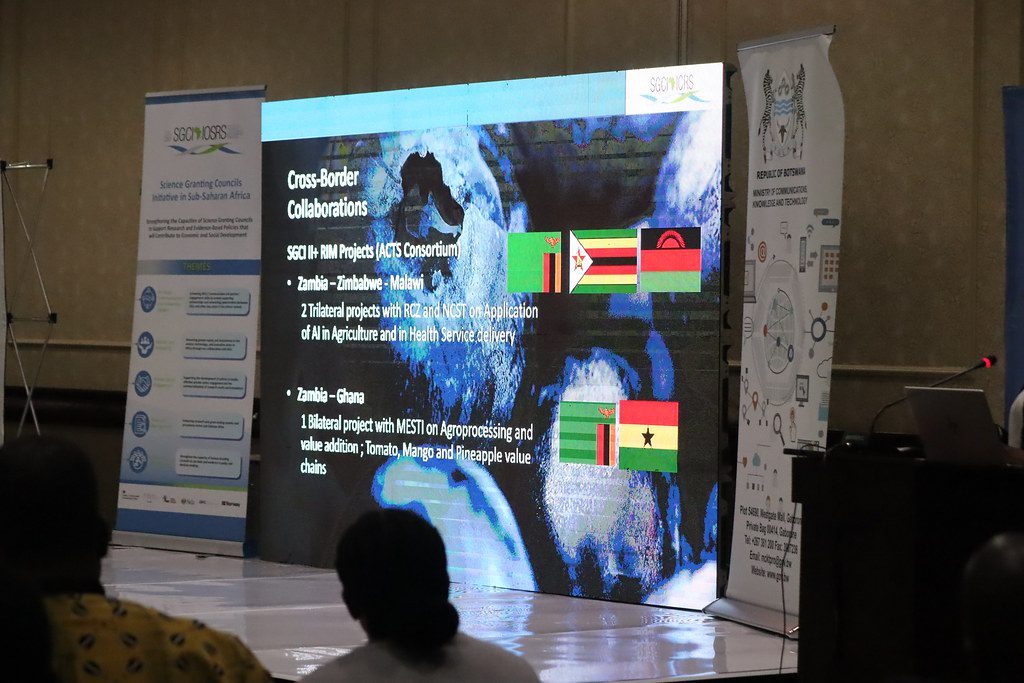SGCI News
[ACCRA] A regional gender awareness program is helping women researchers in science, technology, engineering and mathematics (STEM) to secure funding through the Scientific Research Granting Agencies Initiative (SRGI), but obstacles…
Gender equality is a key element of the Science Funding Agencies Initiative (SFAI).
But efforts to promote gender equality in Africa still face obstacles.
More platforms are needed to highlight the work of women and girls in STEM.
[ACCRA] A regional gender awareness program is helping women researchers in science, technology, engineering and mathematics (STEM) to secure funding through the Scientific Research Granting Agencies Initiative (SRGI), but obstacles remain.
Gender equality is a key element of the Initiative, set up in 2015 to strengthen the potential of public science funding agencies in sub-Saharan Africa to support research and evidence-based policies to drive economic and social development.
” The aim of this awareness-raising initiative is to make women more competitive, so that African countries can enter into partnerships with each other to achieve their goals ,” says Tirelo Ramasedi, in charge of gender equality and women’s inclusion at Botswana’s Research and Knowledge Department.
This gender equality initiative aims to develop the skills of women in sub-Saharan Africa, in order to integrate gender issues into science, technology and innovation.
Tirelo Ramasedi, who attended the Gender Summit held in Ghana from June 8 to 9 , added that Botswana had taken a number of initiatives to increase the participation of women in science and technology, and to inspire the next generation of female researchers, technologists and innovators.
Among these initiatives is a program that gives young women the opportunity to be accompanied by mentors.
” This is done at regional level through the Southern African Development Community ,” she said. She added that Botswana signed the Charter for Women in Science, Engineering and Technology in 2022, as part of its efforts to promote gender equality.
” Still a long way to go “
Efforts to foster gender equality and the inclusion of women correspond to the fifth Sustainable Development Goal (SDG), which aims to achieve gender equality and empower all girls by 2030.
But IOSRS investigator Ingrid Lynch points out that, according to available data, African countries are lagging behind in this area.
She added that initiatives taken to combat inequalities, such as the ” return” to school after pregnancy, are not being followed up, because only a handful of African countries have adopted policies providing financial support for young girls who wish to continue their schooling following pregnancy.
” A girl who is 10 today will see gender equality become a reality in Kenya’s secondary schools when she is 100,” she added. ” For those living in Burkina Faso and Senegal, it won’t happen in their lifetime.”
Women account for a third of researchers in sub-Saharan Africa, and only a third of the region’s countries have data on gender equality, according to Ingrid Lynch, who is also Head of Research at South Africa’s Social Sciences and Humanities Research Council.
She called for ” targeted intervention to support female researchers by funding them to improve their competitiveness and providing training for donors “.
IOSRS is implemented in various regions of sub-Saharan Africa, including countries such as Botswana, Kenya, Ghana and Tanzania.
The initiative receives funding from : the UK Foreign, Commonwealth and Development Office, Canada’s International Development Research Centre, South Africa’s National Research Foundation, the Swedish International Development Cooperation Agency, the German Research Foundation, and the Norwegian Agency for Development Cooperation.
Adelaïde Asantewaa Asante, Director of Operations at the African Institute for Mathematical Sciences in Ghana, reported that gender equality awareness at regional level had not had much impact in Ghana.
She added that it was necessary to innovate, consolidate and perpetuate the advances made, through the role played by women and girls in science.
She explained that at school, most of the scientific concepts taught are associated with male figures.
” Although women make up half the world’s population, they are under-represented in STEM ,” she added.
” Gender inequalities persist, both in education and employment opportunities. “
She believes that there are not enough collaborative platforms for Ghanaian scientists, which is slowing progress towards the fifth SDG.
For her, more platforms are needed to highlight the work done by women in science, particularly women with disabilities.
This work was funded by the International Development Research Centre. in Ottawa, Canada. The opinions expressed are not necessarily those of the Centre or its Board of Governors.
Related News
How Zambia’s science council is funding research that matters
When Zambia’s National Science and Technology Council (NSTC) was established in 1997, its founding vision was to harness science, technology, and innovation to improve the lives of ordinary Zambians. More than two decades later, that vision is increasingly taking shape through a growing portfolio of…
Voices of SGCI: Council leaders on the direction and ambition of SGCI 3
At the African Union’s Science, Technology and Innovation Week in Addis Ababa, earlier this month, leaders of science granting councils reflected on what SGCI Phase 3 represents for Africa’s science and innovation systems. From ownership and alignment to stewardship and sustainability, here are their voices…
Building Africa’s science future: inside the SGCI alliance
As Phase 3 of the Science Granting Councils Initiative launches on the margins of the African Union Summit in Addis Ababa last week, the SGCI Alliance Chair explains why this moment marks a decisive turning point for African science. Cephas Adjei Mensah describes what is…
SGCI funded projects
Rwanda’s integrated approach to sustainable agriculture and nutrition
Project Titles & Institution Areas of Research Number of Projects being funded Project Duration Grant Amount In-Kind Distribution Council Collaboration with other councils





